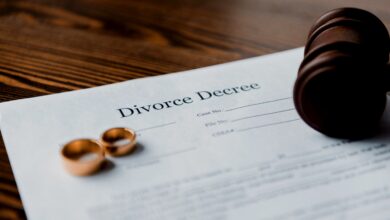Facing Criminal Charges in New York? Here’s What to Do Legally
This guide will walk you through the essential legal steps to protect yourself, understand the judicial process for criminal Charges in New York.

If you’re facing criminal charges in New York, you’re likely overwhelmed with fear, uncertainty, and confusion. The consequences of a criminal conviction can be life-altering, including jail time, steep fines, loss of employment opportunities, and a permanent criminal record. However, understanding your legal rights and taking the right steps immediately can significantly impact the outcome of your case.
This article serves as a complete legal guide for individuals accused of a crime in New York. Whether you’ve been charged with a misdemeanor, felony, drug offense, white-collar crime, or violent crime, this guide will walk you through the essential legal steps to protect yourself, understand the judicial process, and make informed decisions.
Understanding Criminal Charges in New York
Criminal charges in New York are categorized into violations, misdemeanors, and felonies:
- Violations: These are minor offenses such as disorderly conduct or traffic infractions. Though not considered crimes, they may carry fines or short jail sentences.
- Misdemeanors: These are more serious and include crimes like petit larceny, simple assault, or DUI. Convictions can lead to up to one year in jail.
- Felonies: These are the most serious offenses, such as robbery, murder, or drug trafficking. Punishments can include years or even life in prison.
The severity of criminal charges in New York largely determines the complexity of your legal battle and the potential consequences you face.
Step 1: Do Not Speak to Law Enforcement Without an Attorney
The most important rule after an arrest or accusation is: Do not talk to the police without legal representation.
Even if you believe you’re innocent or want to “clear things up,” your words can be misconstrued or used against you in court. Law enforcement officers are trained interrogators, and anything you say—no matter how innocent—can be twisted to support the prosecution’s case.
Invoke your right to remain silent and ask for a criminal defense attorney immediately.
Step 2: Hire an Experienced Criminal Defense Attorney in New York
Facing criminal charges in New York without professional legal representation is a serious risk. Hiring a skilled New York criminal defense attorney is the most critical step you can take to protect your rights.
Look for an attorney with:
- Experience handling cases similar to yours (e.g., drug offenses, white-collar crimes, domestic violence)
- Familiarity with the local courts and prosecutors
- A strong track record of case dismissals, acquittals, or favorable plea deals
A competent attorney will:
- Review the details of your case
- Advise you on your rights
- Build a strong defense strategy
- Represent you in court and during plea negotiations
Step 3: Understand the Criminal Court Process in New York
The legal process for criminal charges in New York typically involves the following stages:
1. Arrest and Booking
You are taken into custody, fingerprinted, and processed. You may be held until your arraignment.
2. Arraignment
This is your first appearance before a judge. You are formally charged, informed of your rights, and asked to enter a plea (guilty, not guilty, or no contest). Bail may also be set.
3. Pre-Trial Hearings
Your attorney may file motions to suppress evidence, challenge the arrest, or negotiate a dismissal. These hearings are crucial for shaping your defense.
4. Plea Bargaining
Many criminal cases in New York are resolved through plea deals. Your attorney may negotiate with the prosecution to reduce the charges or penalties in exchange for a guilty plea.
5. Trial
If your case goes to trial, both sides will present evidence and question witnesses. A judge or jury will then decide your guilt.
6. Sentencing
If convicted, the judge will impose a sentence based on New York sentencing guidelines, your criminal history, and other factors.
Step 4: Know Your Legal Rights When Facing Criminal Charges in New York
Regardless of the charges against you, you have several legal rights guaranteed under both the U.S. Constitution and New York criminal law:
- Right to remain silent
- Right to an attorney
- Right to a fair and speedy trial
- Right to be presumed innocent until proven guilty
- Right to confront your accuser
- Right against self-incrimination and unlawful searches
Understanding and exercising these rights is crucial to your defense.
Step 5: Prepare Your Defense Strategy
Your criminal defense attorney will tailor your strategy based on the charges and evidence. Common defense strategies include:
- Challenging the legality of the arrest or search
- Questioning the credibility of witnesses
- Presenting an alibi
- Demonstrating lack of intent or knowledge
- Negotiating reduced charges or diversion programs
In many cases, early and strategic legal intervention can lead to charges being dropped or reduced before trial.
Step 6: Explore Alternative Sentencing or Diversion Programs
New York offers several programs for non-violent offenders, first-time offenders, and individuals with substance abuse or mental health issues. These may include:
- Drug Treatment Courts
- Mental Health Diversion Programs
- Youthful Offender Programs
- Community Service
- Probation Instead of Jail Time
These alternatives can help avoid a permanent criminal record or incarceration and are worth exploring with your attorney.
Step 7: Avoid Common Mistakes After an Arrest
Here are a few critical missteps to avoid when facing criminal charges in New York:
- Talking about your case on social media or with friends
- Missing court dates, which can result in additional charges
- Violating bail or protection orders
- Failing to follow your attorney’s advice
- Trying to contact witnesses or victims
Mistakes like these can jeopardize your case, so stay cautious and informed throughout the process.
Step 8: Be Aware of the Long-Term Consequences
Even if you avoid jail, a criminal conviction in New York can have long-lasting effects:
- A permanent criminal record visible on background checks
- Loss of professional licenses or certifications
- Difficulty finding housing or employment
- Immigration consequences for non-citizens
- Loss of gun ownership rights
This is why it’s so important to pursue all possible avenues for dismissal, expungement, or sealing of records where applicable.
Step 9: Learn About Expungement and Record Sealing in New York
Unlike many states, New York does not offer full expungement, but certain individuals may qualify for record sealing under specific conditions:
- You have no more than two convictions (only one of which can be a felony)
- At least 10 years have passed since your last conviction or release
- Your conviction is not for a violent or serious offense
Record sealing can help reduce the impact of a conviction when applying for jobs or housing. Ask your attorney if you’re eligible.
Step 10: Stay Proactive and Follow Legal Advice
The more proactive you are about your case, the better your chances. Work closely with your criminal defense attorney, attend all court dates, and gather any supporting documents or witness testimony that could support your defense.
When to Call a Criminal Defense Lawyer Immediately
You should contact an attorney right away if you:
- Have been arrested or charged
- Are being investigated for a crime
- Receive a summons or subpoena
- Are facing probation or parole violations
- Have a prior conviction and want to pursue sealing
The sooner you get legal representation, the more options you have to fight or mitigate the charges.
Final Thoughts
Facing criminal charges in New York is a serious and often overwhelming experience. However, the law provides you with a framework of rights and protections. By acting quickly, securing an experienced criminal defense lawyer, and making informed decisions, you can significantly improve the outcome of your case.
Whether you’re dealing with a misdemeanor, felony, or simply fear you’re under investigation, remember: You are innocent until proven guilty—and you deserve the strongest defense possible.











